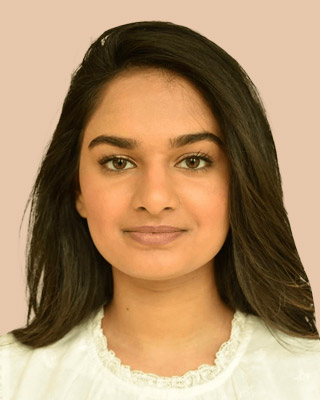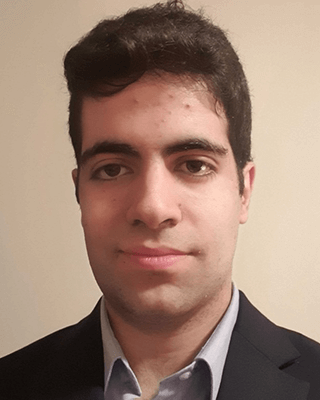
In this program, students will learn the fundamentals of research and research writing under the guidance of a HSA Student Agencies mentors. At the end of the program, students will produce a 1500-2000 word research report, which will be published.
Research is an important step in the process of actualising innovative ideas and building a solid academic profile. Embolden your goals for the future and attain proficiency in topics that resonate with you, by writing your own research paper with the guidance of HSA Student Mentors.

a. Different types of research
b. What counts as research?
c. How to find research opportunities?
d. How to form a thesis?
e. How to write a research paper?
a. Defining the problem
b. Making observations
c. Forming a hypothesis
d. Conducting an experiment
e. Drawing conclusions
a. Case Studies
b. Going over the publication process
c. How to read a research paper and critique it?
d. How to present your research professionally and clearly?
a. How writing in research is different from other types of writing?
b. Formatting research papers
c. Types of sources
d. How to find different types of sources?
e. Citations
a. Literature review
b. How to evaluate different types of sources
a. Analysis, looking at evidence, and coming up with own thesis
a. Writing the research paper (1500 - 2000 word paper)
a. Presentation week: Each student presents on their project to HSA students
a. Different types of research
b. What counts as research?
c. How to find research opportunities?
d. How to form a thesis?
e. How to write a research paper?
a. Defining the problem
b. Making observations
c. Forming a hypothesis
d. Conducting an experiment
e. Drawing conclusions
a. Case Studies
b. Going over the publication process
c. How to read a research paper and critique it?
d. How to present your research professionally and clearly?
a. How writing in research is different from other types of writing?
b. Formatting research papers
c. Types of sources
d. How to find different types of sources?
e. Citations
a. What is a literature review and why is it important?
b. How to evaluate different types of sources?
c. What are the different types of literature reviews?
a. Analysis, looking at evidence, and coming up with own thesis
a. Writing the research paper (1500 - 2000 word paper)
a. Presentation week: Each student presents on their project to HSA students
a. Different types of research
b. What counts as research?
c. How to find research opportunities?
d. How to form a thesis?
e. How to write a research paper?
a. Defining the problem
b. Making observations
c. Forming a hypothesis
d. Conducting an experiment
e. Drawing conclusions
a. Case Studies
b. Going over the publication process
c. How to read a research paper and critique it?
d. How to present your research professionally and clearly?
a. How writing in research is different from other types of writing?
b. Formatting research papers
c. Types of sources
d. How to find different types of sources?
e. Citations
a. What is a literature review and why is it important?
b. How to evaluate different types of sources?
c. What are the different types of literature reviews?
a. Analysis, looking at evidence, and coming up with own thesis
a. Writing the research paper (1500 - 2000 word paper)
a. Presentation week: Each student presents on their project to HSA students
a. Different types of research
b. What counts as research?
c. How to find research opportunities?
d. How to form a thesis?
e. How to write a research paper?
a. Defining the problem
b. Making observations
c. Forming a hypothesis
d. Conducting an experiment
e. Drawing conclusions
a. Case Studies
b. Going over the publication process
c. How to read a research paper and critique it?
d. How to present your research professionally and clearly?
a. How writing in research is different from other types of writing?
b. Formatting research papers
c. Types of sources
d. How to find different types of sources?
e. Citations
a. What is a literature review and why is it important?
b. How to evaluate different types of sources?
c. What are the different types of literature reviews?
a. Analysis, looking at evidence, and coming up with own thesis
a. Writing the research paper (1500 - 2000 word paper)
a. Presentation week: Each student presents on their project to HSA students

Studying Applied Math in Economics with a secondary in Computer Science, Harvard University She is currently working part-time as a UX Designer for HCS Tech for Social Good and is also involved with the HSA Mock Trial Association and the HSA College China Forum. Outside of school, Sherry is passionate about sustainability, intersectionality, and Lin-Manuel Miranda.

Studying Psychology with a secondary in Economics, Harvard University Ina is very passionate about climate justice and gender equality and has worked with the United Nations Foundation and currently has two nonprofits of her own. She has extensive experience helping students out with the college admissions process with her students receiving admission to Stanford, University of Pennsylvania, Boston University, and more. She loves to teach and has an enthusiastic and interactive style of tutoring. Ina hopes to advocate for representation in the entertainment industry by working as an actress and producer.

BA Philosophy and Psychology, Harvard University She has served as the Head of Business Development at Campus Insights, Managing Director of The Academies at HSA, and President of HSA Student Agencies. She also has extensive experience with SAT/ACT, Subject SATs, APs, and a range of academic subjects and was featured in The Crimson as one of the year's 15 most interesting seniors.

Studying Double Concentration in Mathematics and Economics, Secondary in Computer Science, Harvard UniversityGabriel is a rising junior at Harvard College and a Canadian-Lebanese who has spent his entire life in Beirut, Lebanon. During high school, he was pursuing a life science specialization and launched his own biotech startup creating a bacterial product that can turn any organic or mineral waste into natural fertilizer in 21 days. He is a devout crypto and stock market enthusiast.

High-school students from across the world, who are driven by curiosity, ambition and a spark for innovation are welcome to apply. We don’t consider grades or mark sheets as yardsticks for eligibility - instead, we want to know about you, your ideas and goals.
APPLY NOWPrior research experience is not required.
Round 1: Application Form (Click Here).
Round 2: Interview
Students will then be admitted to the program on the basis of their application and interview.
Early application deadline: 05 December, 2024
Regular application deadline: 10 December, 2024
All applications are considered on a rolling basis.
Early application fee: USD 750
Regular application fee: USD 1000
Disclaimer: All the courses and programs provided on our website are not provided by Harvard or any other university. All the courses and programs are created and organized by student clubs and student organizations of various universities. The student clubs and student organisations are run and operated independently by undergraduates of universities. We, Learn with Leaders, are the partner platform of the student clubs and student organisations amplifying the remarkable autonomy and responsibility shouldered by these driven clubs and organisations, promoting the significance and effectiveness of these impactful programs.